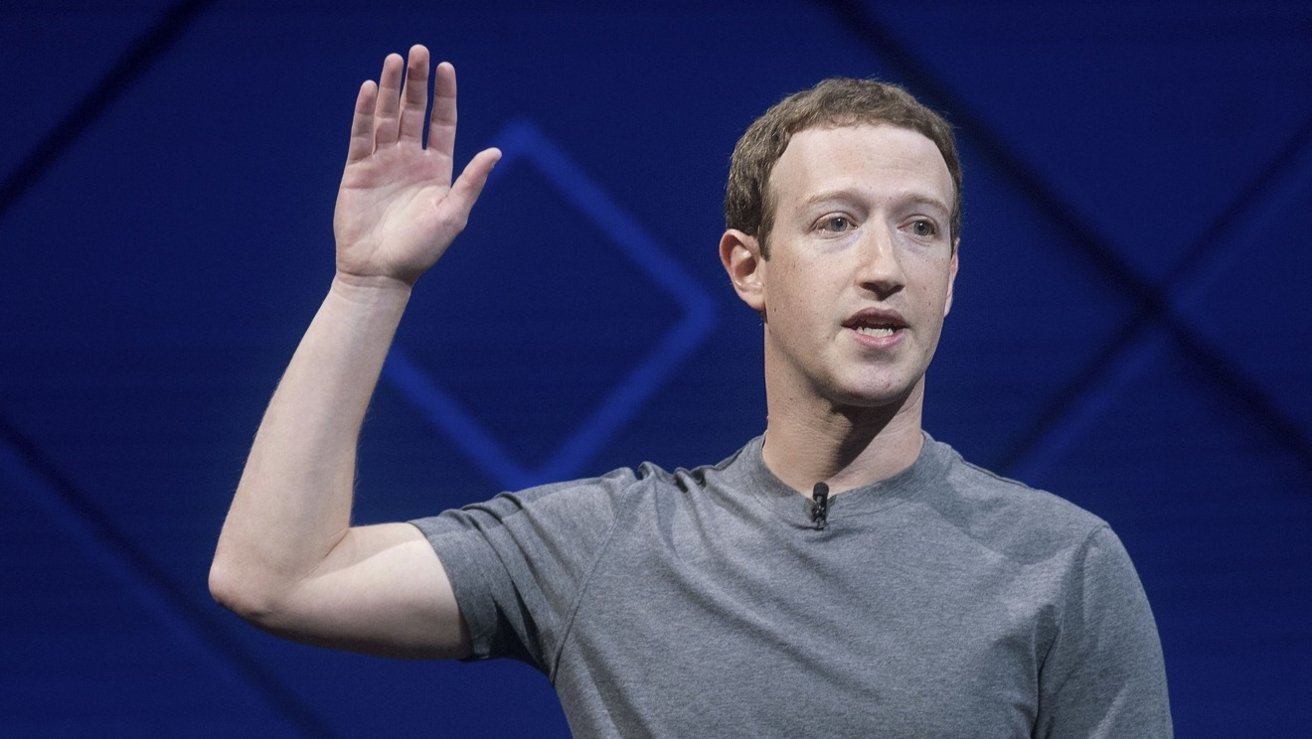Apple CEO Tim Cook warned Facebook CEO Mark Zuckerberg to delete extraneous data about its users in 2019, a profile on the antagonistic relationship between the two men claims.
As the heads of two major tech companies, Cook and Zuckerberg have met each other a number of times, and has clashed in public over their respective companies' policies and actions. In a profile ahead of the implementation of Apple's App Tracking Transparency rules, it seems that Cook made a suggestion in one 2019 meeting that Zuckerberg fundamentally disagreed with.
One of regular meetings between the two men at the Sun Valley gathering in 2019, Zuckerberg was in the process of trying to manage the Cambridge Analytica scandal, which involved the data of more than 50 million Facebook users being harvested and misused without their consent. During the meeting, sources of the New York Times say Zuckerberg asked how Cook would handle the controversy.
Cook reportedly responded "acidly" that Facebook should delete any data that it had collected concerning its users that was sourced from outside its core apps. This would theoretically include any information it had picked up from third-party apps with access to its platform.
Zuckerberg was said to have been stunned by the suggestion, as Facebook heavily relies on that collected data to provide targeted advertising to users. In effect, Cook told Zuckerberg the business was untenable due to the collection of that data.
The Facebook CEO declined to follow Cook's suggestion.
The profile continues to cover a number of elements in the battle between Facebook and Apple that led to the current battle over App Tracking Transparency, which threatens Facebook's advertising revenue. This included a newspaper campaign that tried to paint Apple's policy as bad for small businesses, though later Zuckerberg apparently changed his tune.
The campaign is only the latest attempt by Facebook to discredit Apple and Cook in public. In 2017, Facebook tapped Washington research firm Definers Public Affairs to distribute research about Apple's compromises with the Chinese government, as well as the publishing of articles criticizing Cook.
An "astroturfing" campaign by Definers also tried to suggest Cook was a potential 2020 presidential candidate, potentially in a bid to damage Cook's political relationship with then-president Donald Trump.
Stay on top of all Apple news right from your HomePod. Say, "Hey, Siri, play AppleInsider," and you'll get latest AppleInsider Podcast. Or ask your HomePod mini for "AppleInsider Daily" instead and you'll hear a fast update direct from our news team. And, if you're interested in Apple-centric home automation, say "Hey, Siri, play HomeKit Insider," and you'll be listening to our newest specialized podcast in moments.
 Malcolm Owen
Malcolm Owen

-m.jpg)






 Christine McKee
Christine McKee
 William Gallagher
William Gallagher
 Thomas Sibilly
Thomas Sibilly
 Andrew O'Hara
Andrew O'Hara
 Amber Neely
Amber Neely
 Marko Zivkovic
Marko Zivkovic

 William Gallagher and Mike Wuerthele
William Gallagher and Mike Wuerthele









6 Comments
It’s facebook that should be deleted.
This is exact reason why financial data that are required to be stored for seven years are deleted after seven years and CEO's who are overzealous to keep them longer are not smart and will face liability issues. You never store any information on systems beyond required regulatory period for risk and legal reasons. Apparently Mark Zuckerberg cannot learn this principle. I could help while I was in process to get hired by Facebook, but I decided it is not worth my nerves to work for people who need some maturity and experience first. I started long before Zuckerberg was even planning to attend proper schools.
I stopped using Facebook many many years ago, I will not allow my kids to use it at all, social media are so toxic to young people